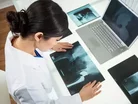Med-tech could save the UK health service millions, new study finds.

Medical Technology Awareness Week has now come to an end, but Medical Technology Group (MTG) have released a new study highlighting the advantages the United Kingdom would likely receive if it further embraced the use of med-tech.
The MTG, a coalition of patient groups, research charities and medical device manufacturers, aim to further increase patient access to the best diagnostic, imaging, surgical and supported-living technologies within the National Health Services (NHS). However, the Group are continually hitting a number of roadblocks.
Its recent study, ‘Keeping Britain Working: How medical technology can help reduce the cost of ill health to the UK economy’ the Group provides key insights into how the implementation of med-tech can reduce healthcare costs and provide a complete economic boost to the UK. With the need to meet a £22bn savings caveat, the NHS will have to look at new, innovative ways to cope with increasing patient demands, complexities in healthcare conditions amidst rising healthcare costs.
Focusing on eight technologies: hip replacements; implantable cardiac defibrillators (ICDs); insulin pumps; diagnostics, including sepsis; fibroid embolisation; pain management; wound care; and coronary angioplasty, the study notes that £476mn in savings could be achieved per annum. Such innovations would enable the NHS to fund 20,000 nurses, improving clinical outcomes and patient experiences.
Over €3.8bn is spent in research and development within med-tech in Europe each year, but findings have found that up to 30mn UK citizens will be diagnosed with long-term conditions by 2050. Sickness absence figures remain staggering in the UK, and costs taxpayers and employers over £20bn per annum.
Related stories
- New report highlights significant growth of global healthcare cloud computing market
- Google wants overhaul traditional GP documentation with voice recognition
- Drones could be set to support the UK healthcare industry
Key findings show that over 100,000 patients undergo a hip replacement each year, many who are working age and can continue to contribute to the economy long after. It is also one of the most in-demand operations in the UK. However, the Group has found that 18,500 citizens have now returned to work as a result of the operation, providing £70mn in savings.
The UK also will also be able to save £13.8mn each year with the implementation of insulin pumps, with over 400,000 citizens living with Type 1 diabetes in the country.
Barbara Harpham, Chair of the Medical Technology Group, explained: “Medical technology has an enormous impact, both in terms of the quality of life that it offers patients and in the cost savings to the health service and the wider economy.
Very often a single procedure can get a patient back to work or caring for their family and can instantly eliminate thousands of pounds in longer term treatment or unplanned admissions. In fact, we have not yet tapped into the full potential of all the medical technology currently available.
The trouble is that the upfront cost of medical technology often means patient access is being limited and cheaper short-term solutions being chosen; in other words, a false economy.”
